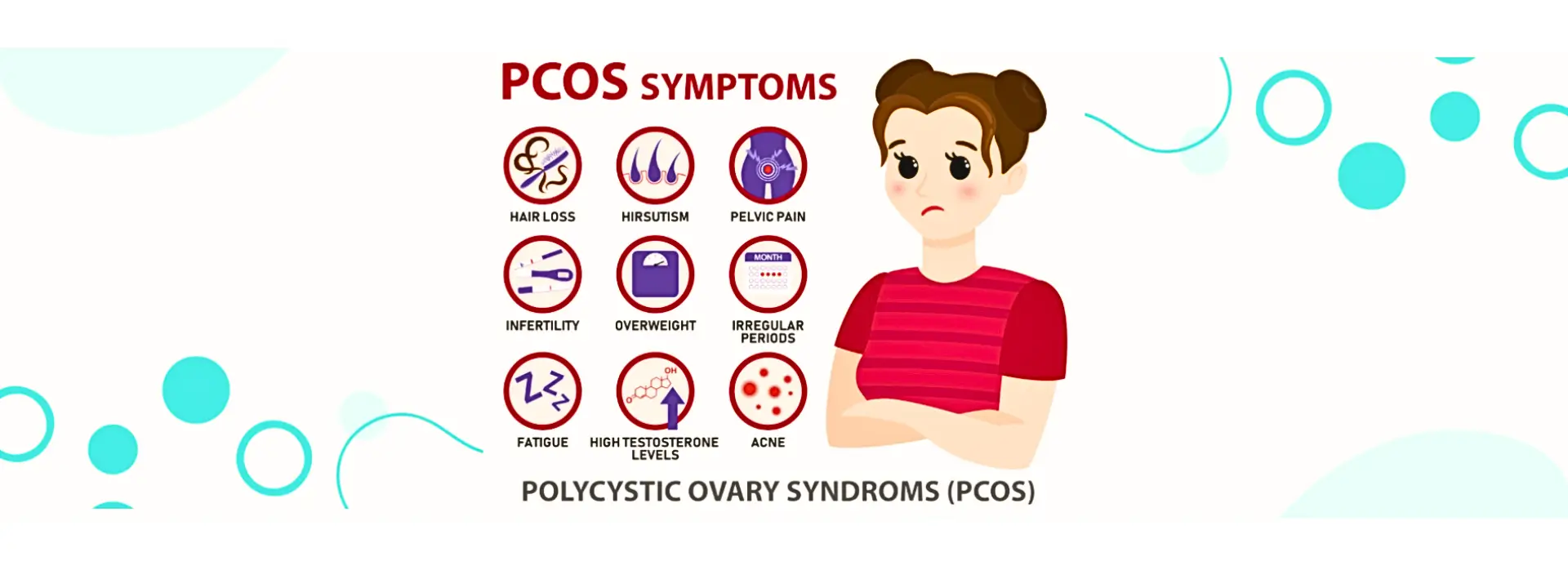Polycystic Ovarian Syndrome (PCOS)




Polycystic Ovarian Syndrome (PCOS)
Navigating PCOS complexities? Seek specialized care at RoyalDocline. Our seasoned OBGYN specialist with over three decades of experience crafts personalized solutions for Polycystic Ovary Syndrome. Experience comprehensive management and steadfast support. Seize control of your health—schedule an appointment today!
Polycystic Ovarian Syndrome (PCOS) is a common hormonal disorder that affects people with ovaries, often during their reproductive years. The exact cause of PCOS is not well understood, but it involves a combination of genetic and environmental factors. The treatment of Polycystic Ovarian Syndrome (PCOS) is often tailored to address specific symptoms and individual health concerns. It’s important to note that there is no cure for PCOS, but various interventions can help manage symptoms and improve overall well-being. Treatment options may include:
Lifestyle Changes:
- Dietary Modifications: Adopting a balanced and healthy diet can be beneficial, especially focusing on whole foods, lean proteins, and complex carbohydrates. Managing portion sizes and incorporating regular meals and snacks may help stabilize blood sugar levels.
- Regular Exercise: Physical activity can improve insulin sensitivity and help manage weight, which is often a concern in individuals with PCOS.
Birth Control Pills:
- Oral contraceptives can regulate menstrual cycles, reduce androgen levels, and alleviate symptoms such as acne and hirsutism.
Anti-Androgen Medications:
- Medications like spironolactone may be prescribed to help reduce the effects of elevated androgen levels, addressing symptoms like hirsutism and acne.
Insulin-Sensitizing Medications:
- Metformin, a medication commonly used to treat type 2 diabetes, is sometimes prescribed to improve insulin sensitivity. This can be particularly helpful for individuals with PCOS who have insulin resistance.
Fertility Medications:
- For those trying to conceive, medications like clomiphene or letrozole may be recommended to induce ovulation.
Weight Management:
- Achieving and maintaining a healthy weight can have significant benefits for individuals with PCOS, as excess weight can exacerbate symptoms and contribute to insulin resistance.
Surgery:
- In some cases, surgical interventions may be considered to address specific issues related to PCOS. For example, ovarian drilling is a surgical procedure that involves making small holes in the ovaries to stimulate regular ovulation.
Additionally, lifestyle changes such as stress management, adequate sleep, and avoiding smoking and excessive alcohol consumption can contribute to overall well-being for individuals with PCOS.

Related Services

Fibroids and G...
Facing challenges like fibroids or gyne...

Menstrual Dis...
Receive specialized care for Menstrual Pr...

Infertility Evalu...
At RoyalDocline, our expertise is dedicated to as...

